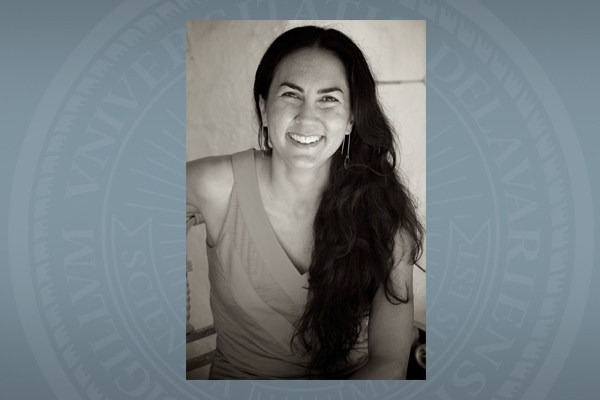
Environmental change in Asia
Asian Studies program presents five-lecture series April 12-May 3
11:10 a.m., April 4, 2016--The University of Delaware Asian Studies Program, in association with the Center for Global and Area Studies, will present five lectures in a series titled “Environmental Change in Asia,” beginning Tuesday, April 12.
All the lectures, which are free and open to the public, will take place from 4:30-6 p.m. in 108 Memorial Hall.
Global Stories
Fulbright awards
Peace Corps plans
April 12 – Kimberley Thomas, a Mellon postdoctoral fellow at the University of Pennsylvania, will speak on "Hydrological Crises in Bangladesh: Does Conventional Wisdom Hold Water?"
Situated in the world’s largest river delta and downstream of the second most populous country in the world, hydrological crises in Bangladesh are widely ascribed to unfortunate geography by scientists, news commentators and policymakers. Damages from recurrent floods and droughts are now being compounded by a new suite of water hazards, as climate change leads to sea level rise and more frequent tropical storms.
Thomas’ talk will question the inevitability of these water crises through a combined environmental-historical-political analysis of state-making, flood management and agricultural development over the past 70 years. She argues that rather than emanating apolitically from a naturally hazard-prone environment, hydrological crises in Bangladesh can be better understood as legacies of imperial rule and technocratic land-use planning aimed at modernization.
April 14 – Afton Clarke-Sather, assistant professor of geography at UD, will present "Will China Meet its Climate Change Commitments?"
Clarke-Sather will discuss whether, with its economic growth falling by half, China will consume less. A growing middle class and, with it, increasing consumption of energy and goods raise questions about the sustainability of China’s environmental future. The government has pledged massive reductions in carbon emissions, and the lecture will consider if it can and will be able to deliver.
April 19 – UD’s Engineers Without Borders Philippines Team will present "Fishing for Water."
The Engineers Without Borders UD partnership with the small community of Ubujan, Philippines, began in 2014 after a student, Natalie Muneses, whose grandfather grew up in the community, introduced it to the UD chapter. Since then, the team has completed two assessment trips in which members found that the main issue is the lack of clean water.
The UD team is now working on the design and implementation of a water treatment and distribution system. Throughout the experience, the team has become familiar with cultural differences and similarities between the Philippines and the U.S.
April 21 – Rachel DiNitto, associate professor of Japanese literature at the University of Oregon, will talk about "Filming Nuclear Environments: The Case of Fukushima."
DiNitto’s presentation will examine one documentary and two fictional films made in the wake of the 2011 Fukushima disaster for their portrayals of the nuclear environment in a post-meltdown, irradiated Japan. These three films – 311, Land of Hope (Kibō no kuni) and The Calm Everyday (Odayaka na nichijō) – range from disaster tourism to dramatic fatalism.
The talk will explore the films’ political stance on the crisis, their intersection with the realities on the ground where residents are being moved back into the former no-go zones and the ways they reflect and possibly shape public perception of the disaster.
May 3 – Alan Fox, professor of Asian and comparative philosophy at UD, will speak about "Process Ecology and the Ideal Dao."
This presentation will take as its starting point the process-oriented understanding of Daoism as championed by the work of Ames/Hall and will then discuss the essentially normative attitudes one finds much in Daoism that can contribute to current discussions of ecology and environmental issues.
Global April
“Environmental Change in Asia” is just one of many events being sponsored this month by the Center for Global and Area Studies as a way for the UD community to explore the world from campus.
See a full list of the center’s Global April activities at this website.








